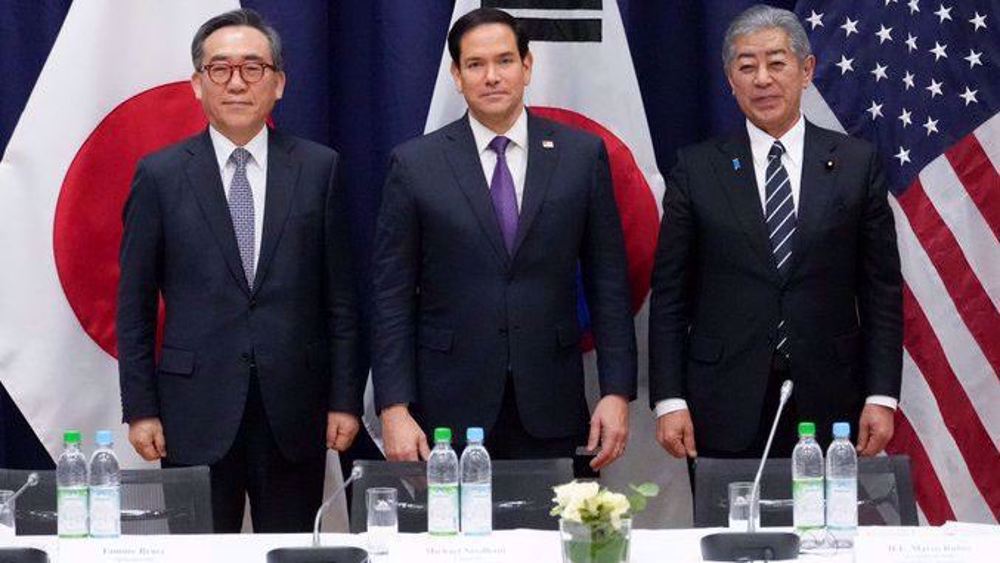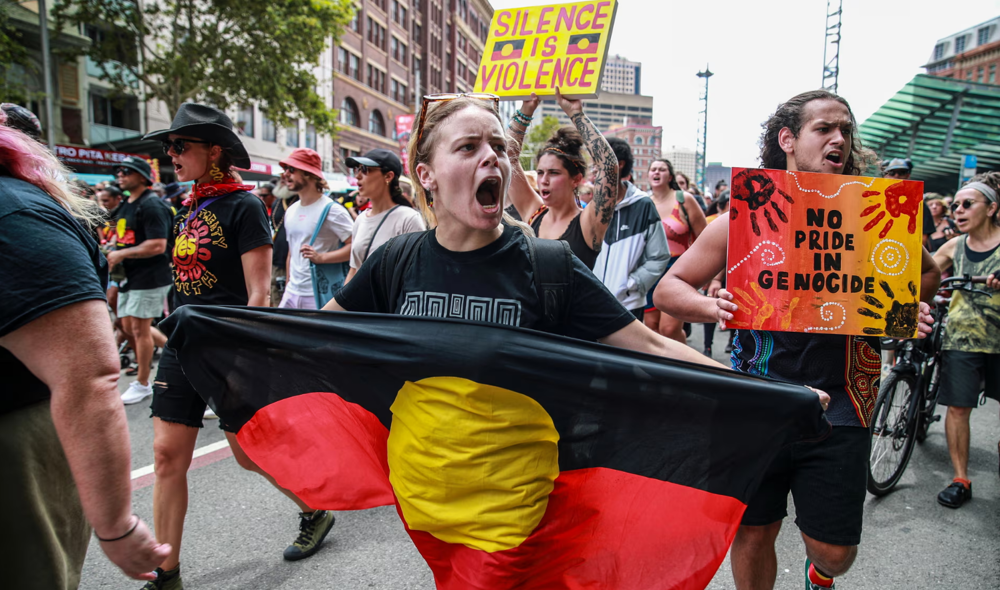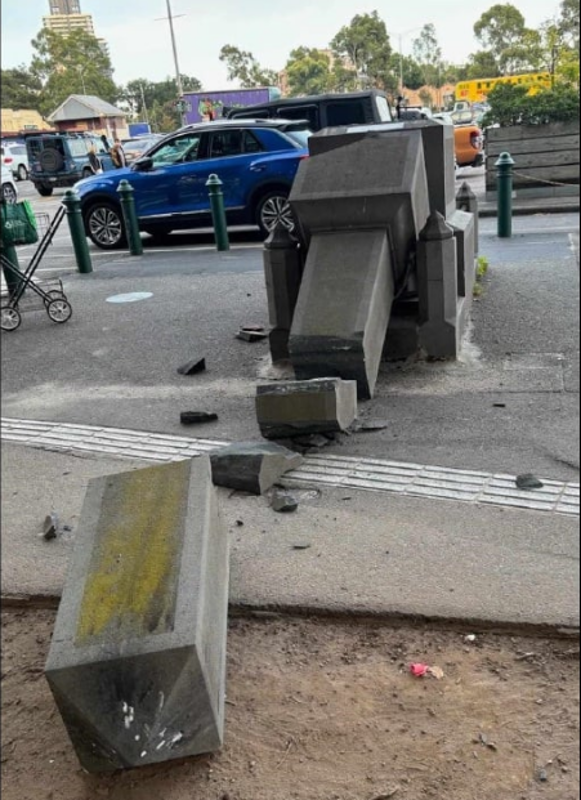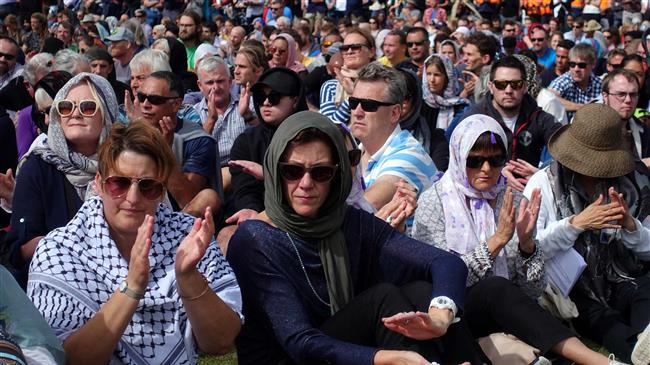New Zealand trial: Christchurch mosque shooter wanted to ‘kill as many as possible, create fear among Muslims’
As a court in New Zealand hears the case of last year’s horrific mosque shooting in Christchurch, a prosecutor says the supremacist involved in the bloodshed attempted to maximize the fatalities of his attack and stoke fear in the country’s Muslim community.
On March 15, 2019, Tarrant opened fire on Muslim worshipers attending prayers at two mosques in Christchurch. He first drove to the al-Noor mosque, firing on people and then drove about to the Linwood mosque and killed more people.
He live-streamed parts of the shooting rampage on Facebook.
Shortly before the terror attacks, Tarrant, an Australian national, had published an ideological “manifesto” filled with extreme views, in which he described Muslim immigrants in Europe as “invaders.”
Brenton Tarrant, 29, has pleaded guilty to 51 murders, 40 attempted murders and one charge of terrorism.
Tarrant has sacked his lawyers and represented himself at the first session of a four-day hearing at the Christchurch High Court on Monday.
During the sessions, Judge Cameron Mander is slated to hear statements by 66 survivors of New Zealand’s worst mass shooting.

Tarrant faces an unprecedented sentence of life in prison with no parole.
“Finality and closure is considered by some as the best means of bringing relief to the Muslim community,” Mander said.
Speaking during the session, Crown Prosecutor Barnaby Hawes said that the attacker had begun formulating a plan years earlier, and his goal was to “inflict as many fatalities as possible.”
The shooter spent years to prepare for the crime. He bought high-powered firearms, researched mosque layouts using a drone, and scheduled his attacks to take place when the mosques are the busiest to maximize casualties, the prosecutor said.
Hawes said Tarrant told the police that he wanted to stoke fear among the Muslim minority in New Zealand.
The shooter not only did not regret his crime but even said he wished he had taken more lives and burnt down the al-Noor mosque after the shootings, the prosecutor said.
“He intended to instill fear into those he described as ‘invaders,’ including the Muslim population or more generally non-European immigrants,” Hawes said.
Commenting on the youngest victim of the raid, Hawes said Tarrant had fired “two precisely aimed shots” at three-year-old Mucaad Ibrahim who was clinging to his father’s leg.
‘You killed your own humanity!’
During the session, relatives of the victims and survivors recounted the horror of the massacre, with Tarrant listening motionlessly.

Maysoon Salama, mother of a 33-year-old futsal goalkeeper who was shot dead, said she constantly wondered what her son was thinking in his last moments “armed only with his courage.”
“I can’t forgive you ... you gave yourself the authority to take the souls of 51 people. Our only crime in your eyes is that we are Muslims,” she said.
“You killed your own humanity and I don’t think the world will forgive you for your horrible crime. May you get the severest punishment for your evil act in this life, and hereafter,” she added.
In turn, Gamal Fouda, imam of the Al Noor mosque, told Tarrant that he was “misguided and misled.”
“I can say to the family of the terrorist that they have lost a son and we have lost many from our community too,” Fouda said. “I respect them because they are suffering as we are.”
Tarrant will be allowed to speak at some point during the hearings, although Mander has powers to ensure the High Court is not used as a platform for extremist ideology.

US, Japan, S Korea renew calls for ‘complete denuclearisation’ of North Korea

Indigenous rights activists rally on Australia Day to protest British colonization legacy

Colonialist’s monument toppled in Melbourne ahead of Australia Day
‘End to violence’: Iran welcomes PKK leader’s call for group to drop weapons, disband
Over 120 Hezbollah fighters martyred in Israeli invasion laid to rest in south Lebanon
Iranian U-27 skiers scoop one gold, three bronze medals in China’s Alpine
Rights group: Palestinians ‘endure shocking atrocities’ in Israeli jails
Schools destroyed: 100,000 Gaza students enroll for new academic year
South Africa, Malaysia, Colombia to block ships carrying arms for Israel
Trump extends Russia sanctions ahead of meeting with Zelensky
Minister: ‘Imported elements' seeking to create chaos in southeast Iran










 This makes it easy to access the Press TV website
This makes it easy to access the Press TV website